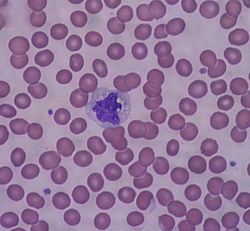If you are a really ambitious learner of English,
the sentence that you probably most dread to hear from a stranger is "Your
English is very good!" This may sound like a compliment, but in fact
it means that the person you are talking to has realized that English is not
your first language. It is possible that your grammar, pronunciation and
intonation are perfect, but you still don't sound like a native speaker. This
may be because you don't use the many of the idioms and phrasal verbs that are so
prevalent in spoken English, or because you don't use question tags.
Question tags are an important part of everyday
communication and perform many different functions. For example, they can be
used to get a conversation started or keep it moving; they can soften an order
to do something or they can be a more polite way to request information.
Apart from the difficulty of knowing when to use
question tags appropriately, the non-native speaker has to learn how to form
them and how to say them. The general rule is that you finish a positive
statement with a negative tag, and vice versa, using the main verb (if there is
no auxiliary) or the first auxiliary verb (if there is an auxiliary).
For example:
It's a lovely day, isn't
it?
You've been told about
the meeting, haven't you?
You didn't do your
homework, did you?
You wouldn't have been
able to do it, would you?
How you say the tag depends on the function of the
tag. The following sentence, when seen written down, is ambiguous.
You haven't seen Sascha,
have you?
This could be a genuine
question; i.e. I don't know if you have seen him or not and I want you to tell
me. (In this case the tag would be stressed and said with rising intonation).
Or it could confirming what I know to be true and expecting an response like:
"No, he hasn't been here all day." (In which case, the tag would not
be stressed, and it would be said with falling intonation.)
Quiz
See if you can finish
the following sentences with the correct question tag. The first ones are
relatively easy, but then they get more difficult!
- You don't like me, ... ...?
- It isn't raining, ... ...?
- You've done your homework, ...
...?
- I'm not late, ... ...?
- I'm invited to your party, ...
...?
- You like German food, ... ...?
- You'll come to my party, ...
...?
- You remembered to feed the cat,
... ...?
- Let's play tennis, ... ...?
- There's a problem here, ... ...?
- He never says a word, ... ...?
- Nobody came to your party, ...
...?
- Don't forget, ... ...?
- You think you're clever, ...
...?
- So you think you're clever, ...
...?
- It's a lovely day today, isn't
it?
- You live in Frankfurt, don't
you?
- Miho can't speak German, can
she?
- You haven't seen Miho, have you?
- His parents are very old, aren't
they?
- You will remember to call me,
won't you?
- You're coming, aren't you?
- Do listen, will you?
- Let's have a beer, shall we?
- He doesn't know what he's doing, does he?
- This is really boring, isn't it?
Answers
- You don't like me, do you?
- It isn't raining, is it?
- You've done your homework,
haven't you?
- I'm not late, am I?
- I'm invited to your party,
aren't I?
- You like German food, don't you?
- You'll come to my party, won't
you?
- You remembered to feed the cat,
didn't you?
- Let's play tennis, shall we?
- There's a problem here, isn't
there?
- He never says a word, does he?
- Nobody came to your party, did
they?
- Don't forget, will you?
- You think you're clever, don't
you?
- So you think you're clever, do
you?
- He's read this book, hasn't he?
- He read this book, didn't he?
- He's reading this book, isn't he?
- He reads a lot of books, doesn't he?'
- He'll read this book, won't he?
- He should read this book, shouldn't he?
- He can read this book, can't he?
- Today's lesson is hard, isn't
it?
- The kids can't sing that song, can
they?
- Toshi likes fishing, doesn't he?
- Susan
is sick today, isn't she?
- Mike
can play the piano, can't he?
- You
will go there, won't you?
- Andrew doesn't study much, does he?
- The
dogs aren't hungry, are they?
- She
can't cook, can she?
- You
won't see her, will you?
- I’m the fastest, aren’t
I?”
- I’m not fat , am
I?
- George was not there, was he?
- I will never stay in that hotel again. Will
you?
- You wear size 2, don't you?
- Peter was born on March 2, wasn't he?
- We live on Cherry St, don't we?
- We're meeting later this afternoon, aren't
we?
- The sun won't shine today, will it?
- Peter enjoys going to movies, doesn't he?
- They don't work at this company, do they?
- Jennifer is studying at the moment, isn't
she?
- We aren't walking, are we?
- Jack bought a new house, didn't he?
- I didn't leave my wallet at home, did I?
- Andy was working when you arrived, wasn't he?
- They weren't waiting for you, were they?
- Harry has lived in New York for a long time,
hasn't he?
- We haven't visited our friends in Chicago this
year, have we?
- They had finished before he arrived, hadn't
they?
- But you don't really
love her, do you?
- This'll work, won't
it?
- Oh you think so, do
you?
- Well, I couldn't
help it, could I?
- But you'll tell me
if she calls, won't you?
- We'd never have
known, would we?
- Oh you do, do you?
- The weather's bad,
isn't it?
- You won't be late,
will you?
- Nobody knows, do
they?
- You never come on
time, do you?
- You couldn't help
me, could you?
- You think you're
clever, do you?
- So you don't think I
can do it, don't you? (British English)
- Shut up, will you!
- She can hardly love
him after all that, can she?
- Nothing will happen,
will it?
- Now, let's check
your understanding of tag questions, shall we?
-
Tom will think about it, won't he?
They won't be able to come to the party,
will they?
He never
came again, did he?
She can rarely
come these days, can she?
You hardly
ever came late, did you?
I barely
know you, do I?
You would scarcely
expect her to know that, would you?
Imperatives
Sometimes
we use question tags with imperatives (invitations, orders), but the sentence
remains an imperative and does not require a direct answer. We use won't
for invitations. We use can, can't, will, would for orders.
|
imperative
+ question tag
|
notes:
|
|
invitation
|
Take a
seat, won't you?
|
polite
|
|
order
|
Help me,
can you?
|
quite
friendly
|
|
Help me,
can't you?
|
quite
friendly (some irritation?)
|
|
Close the
door, would you?
|
quite
polite
|
|
Do it
now, will you.
|
less
polite
|
|
Don't forget,
will you.
|
with
negative imperatives only will is possible
|
Some More Special Cases
|
I am
right, aren't I?
|
aren't I
(not amn't I)
|
|
You have
to go, don't you?
|
you (do)
have to go...
|
|
I have
been answering, haven't I?
|
use first
auxiliary
|
|
Nothing
came in the post, did it?
|
treat
statements with nothing, nobody etc like negative statements
|
|
Let's
go, shall we?
|
let's =
let us
|
|
He'd
better do it, hadn't he?
|
he had
better (no auxiliary)
|
If we want
to ask for information we usually use the standard question form. However,
sometimes we just want to keep a conversation going, or confirm
information. In this case, question tags are often used to solicit input
or confirmation to what we are saying. Using question tags well also promotes a
understanding of the use of various auxiliary verbs.
Tags are very common in
spoken English, and have many functions. One of the common functions is to
start a conversation or help keep it going.
Common tags include won't you?
wasn't it? don't you? haven't you? okay? and right?
You don't like me, do you?
- You won't tell him my secret, will you?
- He doesn't speak German, does he?
- You're coming to my party, aren't you?
- She's really good at chess, isn't she?
- You haven't done your homework, have you?
-She comes from Korea,
doesn't she?
- You like heavy metal music, don't you?
- He got top grade in the math test, didn't he?
- I really messed up, didn't I?
- He's from Italy, isn't he? (flat
or falling intonation - short pause before the tag - more a statement than
a question, not really expecting an answer)
- He's from Italy, isn't he? (sharply
rising intonation - longer pause before the tag - a question expecting an
answer)
A question tag or tag
question is a grammatical
structure in which a declarative statement or an imperative
is turned into a question by adding an interrogative
fragment (the "tag"). For example, in the sentence "You're John,
aren't you?", the statement "You're John" is turned into a
question by the tag "aren't you". The term "question tag"
is generally preferred by British grammarians, while their American
counterparts prefer "tag question".
Uses[edit]
In most languages, tag questions are more common in colloquial spoken usage
than in formal written usage. They can be an indicator of politeness,
emphasis or irony. They may
suggest confidence or lack of confidence; they may be confrontational,
defensive or tentative. Although they have the grammatical form of a question,
they may be rhetorical (not expecting an answer). In other
cases, when they do expect a response, they may differ from straightforward
questions in that they cue the listener as to what response is desired. In
legal settings, tag questions can often be found in a leading
question. According to a specialist children's lawyer at the NSPCC, children find
it difficult to answer tag questions other than in accordance with the expectation
of questioner.[1]using
or taging a question
special case occurs when the main
verb is to be in a simple tense. Here the tag question repeats the main
verb, not an auxiliary:
- This is a book, isn't it?
If the main verb is to have, either solution is possible:
- He has a book, hasn't he?
- He has a book, doesn't he?
Sometimes the rising tag goes with the positive to positive pattern to
create a confrontational effect:
- He was the best in the class, was he? (rising: the speaker is
challenging this thesis, or perhaps expressing surprised interest)
- He was the best in the class, wasn't he? (falling: the
speaker holds this opinion)
- Be careful, will you? (rising: expresses irritation)
- Take care, won't you? (falling: expresses concern)
- You don't remember my name, do you? (rising: expresses surprise)
- You don't remember my name, do you? (falling: expresses amusement or
resignation)
- Your name's Mary, isn't it? (rising: expresses uncertainty)
- Your name's Mary, isn't it? (falling: expresses confidence)
- a declarative
clause: It was quiet in there, wasn't it?
- an exclamative
clause: How quiet it was in there, wasn't it?
- an imperative
clause: Be quiet for a moment, will you?
Commas with a tag question
"Place a comma between a statement and the brief question that follows it
when the subject of
the statement and the subject of the question is the same entity (example 1).
When they have different subjects, the statement and the question must be
punctuated as separate grammatical elements
|
Here are some
examples,
You haven't seen Joe, have you?
Your friend is coming, isn't she?
She doesn't know my number, does she?
They are not coming to the party, aren't they?
Your dog can swim, can't he?
In question tags we use helping verbs like do, have, will, was, etc. And we
normally use a negative question tag after a positive sentence and vice
versa.
|
|
Positive sentence
|
Negative tag
|
|
John will be late,
|
won't he?
|
|
There were a lot of
people at the conference,
|
weren't there?
|
|
You should study hard,
|
shouldn't you?
|
|
It's a beautiful day,
|
isn't it?
|
|
|
Negative sentence
|
Positive tag
|
|
John won't be late,
|
will he?
|
|
They don't like pets,
|
do they?
|
|
They haven't got a
car,
|
have they?
|
|
You never smoke,
|
do you?
|
|
We hardly go out at
night,
|
do we?
|
|
Words like 'never, hardly, rarely' have the same meaning as a negative
sentence so the tags must be positive.
Again there are some special cases with question tags.
|
|
|
I am too old for a
roller coaster,
|
aren't I? (NOT am I
not?)
|
|
We use the tag 'shall
we?' after let's,
|
|
Let's go to a movie,
|
shall we?
|
|
|
After the imperative
(request or order), we use 'will you?'
|
|
Be quiet,
|
will you?
|
|
|
Don't open the window,
|
will you?
|
|
The meaning of the questions depends on your intonation, rising or falling
tone. If your voice goes up at the end of the sentence, you are asking a
question because you are not sure about what the statement.
|
|
|
You haven't seen Joe
today, have you?
|
No, I'm afraid not.
|
|
Your friend is coming,
isn't she?
|
Yes, she is coming
soon.
|
|
She doesn't know my
number, does she?
|
No, I never gave it to
her.
|
|
They are not coming to
the party, aren't they?
|
No, they are busy.
|
|
Your dog can swim, can't he?
|
Of course, he can.
|
|
But if your voice goes down at the end of the sentence, you are not really
asking a question. You just want the listener to agree with you.
|
|
|
It's a beautiful day,
isn't it?
|
Yes, lovely
|
|
Bill doesn't look well
today, does he?
|
No. He looks very
tired.
|
|
The baby has his
father's eyes, hasn't he?
|
Yes, he does.
|
|
This is nice, isn't it?
|
Yeah!
|
|
You finished your
paper, didn't you?
|
Yes, all done.
|
|
To respond to a question tag, don't mind the question. Just think of the
truth. This is fun, isn't it? (with a falling tone)
|
|
1. Hurry up, __________
?
|
|
 2. You haven’t see this movie, __________? 2. You haven’t see this movie, __________?
|
|
 3. He knows that, __________? 3. He knows that, __________?
|
|
 4. You never told my secrets, __________? 4. You never told my secrets, __________?
|
|
 5. Promise me not to tell anyone,
__________? 5. Promise me not to tell anyone,
__________?
|
|
 6. I can count on you, __________? 6. I can count on you, __________?
|
|
 7. She is rarely here on time, __________? 7. She is rarely here on time, __________?
|
|
 8. Let’s hit the road, __________? 8. Let’s hit the road, __________?
|
………………………………………………………………………………………………………….
Answers :
1. Hurry up, will you?
2. You haven’t see this movie, have you?
3. He knows that, doesn’t he?
4. You never told my secrets, did you/ have you?
5. Promise me not to tell anyone, will you?
6. I can count on you, can’t I?
7. She is rarely here on time, is she?
8. Let’s hit the road, shall we?
………………………………………………………………………………………………………………
Put the following question tags in to the correct
gaps. Each question tag is used only once.
isn't it?, has he?, were you?, aren't you?,
doesn't he?, do you?, is she?, didn't you?, did she?
- She didn't watch the film last
night, ________
- It's great to see each other
again, __________
- He comes every Friday, _________
- You're married, __________
- You went to Tom's last weekend,
_________
- You don't like tripe,
___________
- She isn't much of a cook,
________
- He hasn't lived here long,
________
- You weren't invited to the
party, __________
;;;;;;;;;;;;;;;;;;;;;;;;;;;;;;;;;;;;;;;;;;;;;;;;;;;;;;;;;;;;;;;;;;;;;;;;;;;;;;;;;;;;;;;;;;;;;;;;;;;;;;;;;;;;;;;;;;;;;;;;;;;;;;;;;;;;;;;;;;;;;;;;;;;;;;;;;
Match The Sentence Halves
|
They enjoy playing football,...
|
...don't they?
|
|
She isn't thinking of moving,...
|
...is she?
|
|
He'll go to university,....
|
...won't he?
|
|
She hasn't studied for very long,...
|
...has she?
|
|
Jack bought a new car last week,...
|
...didn't he?
|
|
They aren't serious,...
|
...are they?
|
|
You live in an apartment,...
|
...don't you?
|
|
She doesn't speak Russian,...
|
...does she?
|
|
They won't shut up,...
|
...will they?
|
|
He isn't concentrating,...
|
...is he?
|
|
They hadn't visited you before,...
|
...had they?
|
|
This music is fantastic,...
|
...isn't it?
|
;;;;;;;;;;;;;;;;;;;;;;;;;;;;;;;;;;;;;;;;;;;;;;;;;;;;;;;;;;;;;;;;;;;;;;;;;;;;;;;;;;;;;;;;;;;;;;;;;;;;;;;;;;;;;;;;;;;;;;;;;;;;;;;;;;;;;;;;;;;;;;;;;;;;;;;;;;;;;;;;;;;;;;;;;;;;;;;;;;;;;;;;;;;;;;;;;;;;;;;;;;;;;;;;;;;;;;;;;;;;;;;;;;;;;;;;;;;;;;;;;;;;;;;;;;;;;;;;;;;;;;;;;;;;;;;;;;;;;;;;;;;;;;;;;;;;;;;;;;;;;;;;;;;;;;;;;;;;;;
Exercise 1.
Add suitable tags:
1. Everybody's gone home, _______________ ?
2. Nobody here speaks French, _______________ ?
3. Nobody phoned, ______________ ?
4. We never drink coffee, _______________ ?
5. That's no excuse, _______________ ?
6. Let's go for a walk, _______________ ?
7. Nothing ever changes, _______________ ?
8. I hardly smoke anymore, _______________ ?
Exercise 1.
1. haven't they?
2. do they?
3. did they?
4. do we?
5. is it?
6. shall we?
7. does it?
8. do I?
…………………………………………………………………………………………………………………….
Exercise 2.
Add suitable tags:
1. Nobody saw us, _______________ ?
2. Sean never goes to bed until really late, _______________ ?
3. Let's go to Mexico this summer, ______________ ?
4. The sun hardly shone all summer, _______________ ?
5. Somebody called me , _______________ ?
6. It's never too late , _______________ ?
7. There's no homework, _______________ ?
8. Everybody enjoyed the party, _______________ ?
Exercise 2.
1. did they?
2. does he?
3. shall we?
4. did it?
5. didn't they?
6. is it?
7. is there?
8. didn't they?
………………………………………………………………………………………………………………..
;;;;;;;;;;;;;;;;;;;;;;;;;;;;;;;;;;;;;;;;;;;;;;;;;;;;;;;;;;;;;;;;;;;;;;;;;;;;;;;;;;;;;;;;;;;;;;;;;;;;;;;;;;;;;;;;;;;;;;;;;;;;;;;;;;;;;;;;;;;;;;;;;;;;;;;;
Exercise 1.
Add suitable tags:
1. That's the best solution, _______________ ?
2. Nobody failed the exam, _______________ ?
3. Everybody's coming to the wedding, ______________ ?
4. Let's meet at the Irish pub, _______________ ?
5. We never see that actor any more, _______________ ?
6. He hardly said a word, _______________ ?
7. Somebody set the building on fire deliberately, _______________ ?
8. Don't forget to do your homework, _______________ ?
Exercise 1.
1. isn't it
2. did they
3. aren't they
4. shall we
5. do we
6. did he
7. didn't they
8. will you
Exercise 2.
Add suitable tags:
1. It's hardly surprising, _______________ ?
2. There's nothing anyone can do, _______________ ?
3. Somebody must have Tom's phone number, ______________ ?
4. There's no pizza left, _______________ ?
5. Don't let him boss you about, _______________ ? (definition: boss
sb about)
6. Let's be serious for a moment, _____________ ?
7. Everyone has heard of 'phrasal verbs', ___________?
8. Nobody was flirting with my boyfriend, _____________?
Exercise 2.
1. is it
2. is there
3. mustn't they
4. is there
5. will you
6. shall we
7. haven't they
8. were they
;;;;;;;;;;;;;;;;;;;;;;;;;;;;;;;;;;;;;;;;;;;;;;;;;;;;;;;;;;;;;;;;;;;;;;;;;;;;;;;;;;;;;;;;;;;;;;;;;;;;;;;;;;;;;;;;;;;;;;;;;;;;;;;;;;;;;;;;;;;;;;;;;;;;;;;;;;;;;
Question tags – advanced points
Aren’t I?
The question tag for I am is aren’t I,
not amn’t I.
I am late, aren’t I? (NOT I am late, amn’t I?)
Imperative sentences
The question tag for imperative sentences are will
you/ won’t you/ can you
/ can’t you/ would you / could you.
Come here, will you?
Open the windows, would you?
Keep quiet, can’t you?
Shut up, won’t you?
The question tag for a negative imperative is will
you?
Don’t forget, will you?
Let’s
After let’s… we use shall we?
Let’s go for a walk, shall we?
Sentences containing negative words like hardly,
never, no, nobody and little are followed by non-negative tags.
You never call me, do you? (NOT
…don’t you?)
He is no good, is he? (NOT …isn’t he?)
I have hardly ever met her, have I?
In question tags referring to nothing and everything
we use it.
Everything is ok, isn’t it? (NOT …isn’t everything?)
Nothing can happen, can it? (NOT …can nothing?)
In question tags referring to nobody, somebody,
everybody etc., we use they.
Nobody came, did they? (NOT …did nobody?)
Somebody wanted a drink, didn’t they?
After principal verb have, question tags
with have and do are often both possible. Note that do is
more common in American English.
They have a farm house, haven’t / don’t
they?
He had a bad headache, hadn’t/didn’t he?
Notes
In sentences with question tags, pronoun subjects
and auxiliary verbs are often left out.
Nice day, isn’t it. (More natural than ‘It’s a
nice day, isn’t it?)
;;;;;;;;;;;;;;;;;;;;;;;;;;;;;;;;;;;;;;;;;;;;;;;;;;;;;;;;;;;;;;;;;;;;;;;;;;;;;;;;;;;;;;;;;;;;;;;;;;;;;;;;;;;;;;;;;;;;;;;;;;;;;;;;;;;;;;;;;;;;;;;;;;;;;;;;;;;;
UNIT 3
QUESTION TAGS1
Question
tags2 are normally used in
informal speech or writing.
Therefore, we usually contract them. If we say a question tag
with a
falling intonation, it is not a real question, that is
to say we
just want our listener(s) to agree with us. However,
if it is
uttered with a rising intonation, it is a real question,
as we are
not sure whether something is true or not. They mean
“isn’t it
true/right?” or “is it true/right?”.
Add
question tags to the statements given below.
1 Examples:
John
can come next weekend, can’t he?
John
can’t come next weekend, can he?
a I can
ride a bicycle.
b She can’t
help talking nonsense.
c They
can’t take your car.
d We can
arrange a big party.
e It can’t
be done.
2 Examples:
I am
your best schoolmate, aren’t I? (am I not? is also possible
in a more
formal context.)
I am
not your best schoolmate, am I?
a I’m very
intelligent.
b I’m not
very clever.
c I am not
to blame for the accident.
d I’m very
naughty.
e I am very
spoilt.
3 Examples: (he, she, it is; you, we, they are;
see unit 6,
part 1, section 1.)
This
is rubbish, isn’t it?
This
is not rubbish, is it?
a Paul
isn’t the black sheep of the family.
b It’s a
deal.
c Margaret
and Mrs Green are speaking ill about Mr Green.
d There3 aren’t any strawberries
left.
e There are
two beds.
4 Examples: (he, she, it has; other persons, have; see
unit 6, part 4,
sections 1 and 2.)
She’s
got a beautiful smile, hasn’t she?
She
hasn’t got a beautiful smile, has she?
a You’ve
got ten quid.
b It’s got
six sides.
c She
hasn’t got a son and two daughters.
d They’ve
got some unripe bananas.
e I haven’t
got a lot of apricots.
5 Examples: (simple present; all the persons, but the third
person
singular; see also unit 7, part 1.)
My
sisters love chatting to friends, don’t they?
My
sisters don’t love chatting to friends, do they?
a You start
work at 8 am.
b You don’t
finish work at 5 pm.
c They
enjoy long conversations.
d You don’t
share anything.
e I talk
too much.
6 Examples: (simple present; third person singular:
he,
she, it; see also unit 7, part 1.)
This
irritates him, doesn’t it?
This
doesn’t irritate him, does it?
a He
doesn’t worry about car accidents.
b His dog
leads his blind sister home.
c She wants
to have a child.
d It smells
fishy to you.
e She
doesn’t approve of parties.
7 Revision
exercise.
a She
revises your work.
b She
doesn’t like this corridor.
c I’m the
best singer in the world.
d I am not
an amateur.
e They
haven’t got the keys.
f He always
rings the bell.
g They
don’t go out very often.
h He
doesn’t sell vegetables.
i There
aren’t great expectations.
j We are
quits now.
k He is
going to phone Ann first thing in the morning.
l You hate
hunting.
m You can’t
land a plane.
n He is
going to wind the clock.
o Life is
hard.
p Charles
and William aren’t taking driving lessons.
q Natasha
does not know what to do.
r My dogs
don’t bark at night.
s They
can’t leave this door open.
t Ingrid
takes things easy.
u Maggie is
easygoing.
v You
remember the first time we met.
w It
doesn’t work properly.
x Oliver
and Jeremy think this crossword is as easy as
falling
of a log.
y You don’t
agree with them.
z A lady
doesn’t smoke cigars.
8 Examples: (simple past; irregular verbs; see the list
provided
in unit 8; see also unit 7, part 3.)
Mary
and John went to Cuba, didn’t they?
Mary
and John didn’t go to Cuba, did they?
a Judith
didn’t feed her Alsatian dog last night.
b The
vessel sank.
c It froze
yesterday night.
d They
didn’t take cover from the blizzard.
e They
didn’t find their way out.
9 Examples: (simple past; regular verbs; see unit 7, part 3.)
Jason
camplained about the food, didn’t he?
Jason
didn’t complain about the food, did he?
a Kevin
dropped the soup.
b Your
grandfather always carried a stick.
c Barry
robbed them last month.
d
Christopher joined the army last year.
e His wound
didn’t heal.
10 Examples: (I, he, she, it was; you, we, they were;
see unit 6,
part 1, section 2.)
You
were frightened to death, weren’t you?
You
weren’t frightened to death, were you?
a There
wasn’t anything to eat or drink.
b We were
in danger.
c He wasn’t
inside the café.
d She was
outside the bookshop.
e They were
very sensitive.
11 Examples:
He
never goes to church, does he?
They
hardly ever go to Laura’s surgery, do they?
Barely,
hardly, neither, never, nobody, scarcely, seldom, and
so on,
are negative words. Consequently, we shall use an
affirmative interrogative tag. See units 5 (section 3) and
14 (section 9).
a There is
no butter left.
b Nothing
matters now.
c I never
drink beer.
d He seldom
stays at home.
e He can
barely read.
12 Examples:
Nobody
puts up with her behaviour, do they?
Everything
was said, wasn’t it?
We
normally use they in the tag after anybody, anyone, everybody,
everyone,
nobody, no-one, somebody, someone, and any other
singular
words referring to people. However, he can be employed
in more
formal speech or writing. The change of he to they is
due to
the fact that many people consider he sexually bias. If
we refer
to things (anything, everything, nothing, something),
we use it.
See unit 10, section 9.
a Nobody
knows where the treasure is hidden.
b Nothing
was done about it.
c
Everything is very expensive nowadays.
d Everybody
gave him a warm reception.
e Every
child has4 to help to lay the table.
13 Revision exercise.
a Edgar’s
talk was a failure.
b The van
crashed into a wall.
c We didn’t
buy any pears.
d My dog
buried the bone.
e I can’t
look her up when I go to Glasgow.
f Your boss
had to do without his secretary yesterday morning5.
g She wants
to open a stationer’s shop.
h No-one
betrayed you.
i She
yelled at you about your getting there late.
j She
hugged him.
k I can’t
catch up with you.
l Mildred
never shows off.
m They were
always boasting.
n Nothing
grows up there.
o He wasn’t
up when you looked in on him at eight o’clock in
the
morning.
p I told
you not to hit your sister.
q He
doesn’t cook very well.
r Philip
didn’t climb that oak-tree.
s Monica
and you don’t often make your beds.
t None of
them entered the hut.
u Her new
boss was impressed by her good manners.
v I am a
good politician.
w I’m not
in the mood for going out tonight.
x They
haven’t got your purse.
y He is in
a good temper today.
z She
concluded by saying that one’s family always comes last.
____________________
1 They are also called ‘tag questions’.
2 If the tag is positive, we expect a negative
reply; if it is
negative,
a positive one:
‘She
isn’t cold-hearted, is she?’
‘No, she
isn’t.’
‘They
should at least acquaint themselves with the machinery,
shouldn’t
they?’
‘Yes, I
think they should.’


.jpg)


.jpg)












 موازنه چیست؟
موازنه چیست؟ باکتریو فاژ
باکتریو فاژ فرمول مساحت و محیط اشکال هندسی
فرمول مساحت و محیط اشکال هندسی باکتری ها
باکتری ها سجع
سجع آیینه سکندر
آیینه سکندر هوشمندسازی مدارس
هوشمندسازی مدارس مونوسیت
مونوسیت آرایه ی استعاره
آرایه ی استعاره